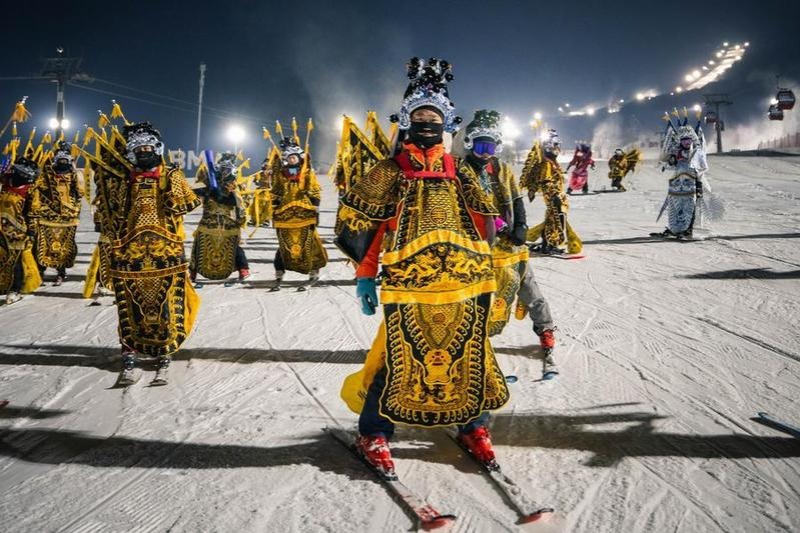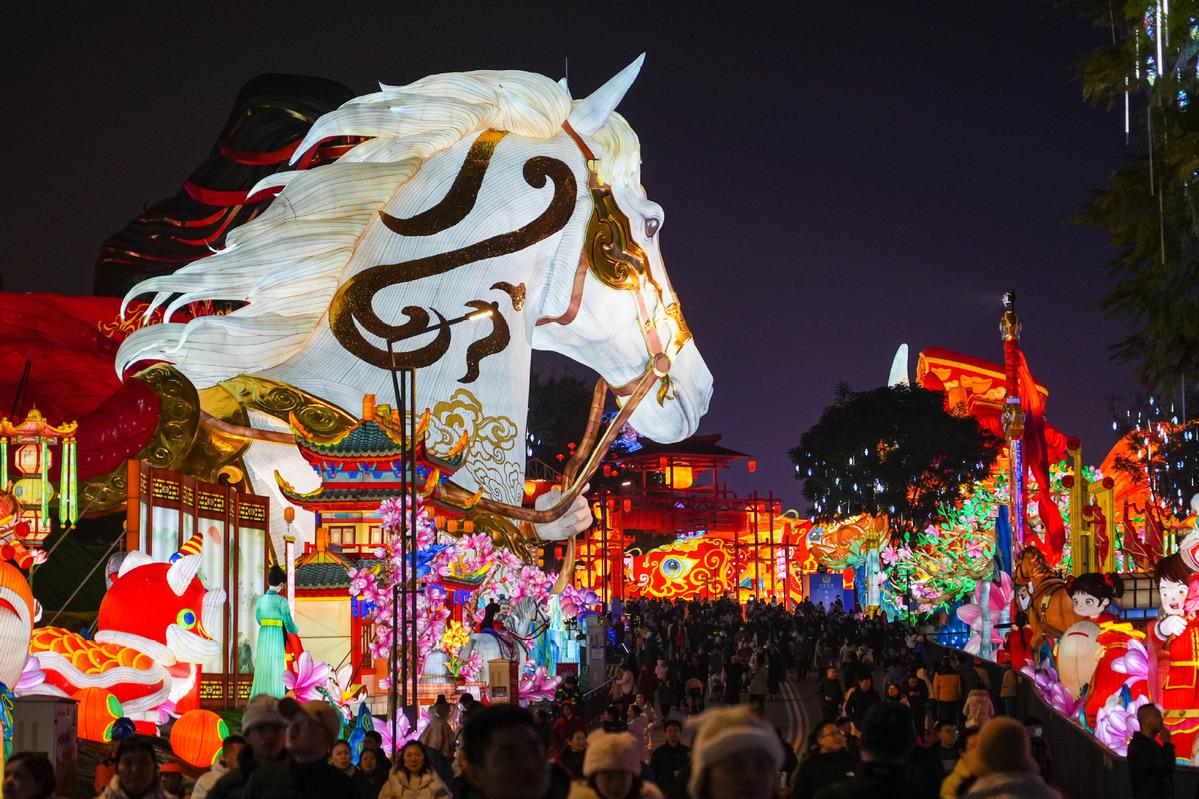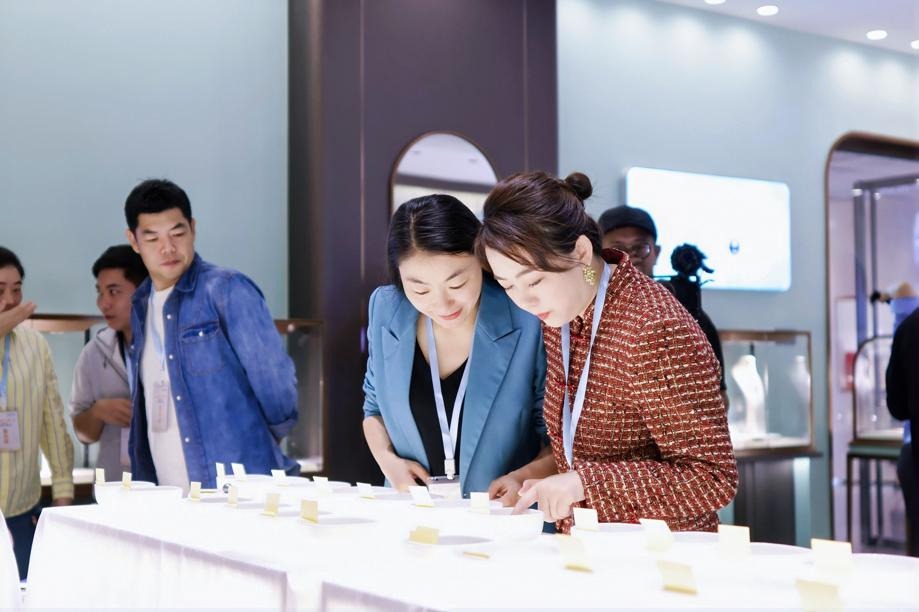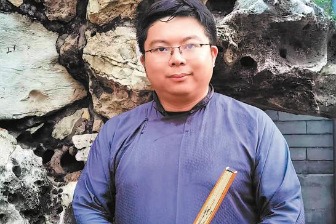From 26 daily cases to zero, Olympic bubble effective


With more than 10,000 athletes, journalists and officials from around the world having descended on Beijing for the Winter Olympics, holding a safe Games represents a daunting challenge for the organizers. But thanks to stringent and effective COVID-19 countermeasures, the Games have proceeded smoothly, with infection risks under control.
Over 10 days into the event, the number of positive cases reported inside the "closed loop" for the Winter Olympics has declined from a peak of 26 cases on Feb 2, two days before the Games opened.
There was only one positive case reported in the closed loop on Monday. On Sunday, no new COVID-19 cases were reported inside the closed loop for the first time.
"The situation inside the closed loop is safe and there is no sign of virus transmission, which can be said to have met our expectations," Brian McCloskey, chief of the 2022 Beijing Medical Expert Panel, told a news briefing last week.
Safe Games
Strict protocols are in place to ensure the safety of competitors, officials, personnel, international media and spectators.
It all starts at the airport, where athletes, coaches and others go through entry procedures, including their first daily COVID-19 tests.
The closed-loop system, which is being applied to all three competition zones-in downtown Beijing, the capital's Yanqing district, and Zhangjiakou in Hebei province-is central to the organizers' COVID-19 countermeasures. Hotels and sports venues are linked by special buses and trains to separate participants within the closed loop from the general public and prevent the spread of the novel coronavirus.
Everyone is tested daily for the virus, and anyone who tests positive is rapidly isolated to prevent any spread. Athletes and others are required to wear N95 face masks when not competing.
Many Games participants are hugely supportive of the policies.
Richard Lam, the venue photo manager at the National Sliding Center, arrived in Beijing early in December and had an opportunity to tour the city before entering the Olympic bubble.
"I feel completely safe here and glad that all the countermeasures and procedures have been put in place," he said. "It's designed to keep everyone safe at these Games."
Lam's remarks were echoed by Australian four-time Olympian Brit Cox, who said: "I actually think the bubble is really excellent. I feel really safe, I feel like the village is incredibly clean and healthy."
According to the Beijing Organizing Committee for the Olympic Games, the cumulative total of positive COVID-19 cases for the Games period now stands at 433, while more than 1.4 million novel coronavirus tests have been conducted.
The COVID-19 policies adopted at the Winter Olympics mirror China's "dynamic zero-COVID-19" approach, which aims at early detection, swift response, targeted containment and effective treatment.
Christophe Dubi, the International Olympic Committee's executive director for the Olympic Games, spoke highly of China's efforts to hold a virus-free Olympics.
"Really no effort is spared, no stone unturned to keep everybody safe," he said. "The degree of sophistication of the operation is something unprecedented. The job that has been done is absolutely remarkable."
High-tech and friendly
The Olympic Games are a perfect stage to showcase cutting-edge technologies. At the Beijing Games, technologies have also played a part in preventing outbreaks.
In a bid to reduce human interaction, robots are being used to safely deliver food at the canteen in the Main Media Center. Dishes like noodles and burgers are also made by robots.
Robots are also used for disinfection, body temperature checks and environmental monitoring at many venues.
Tickets were not sold to the public amid concerns over the spread of the novel coronavirus, but the Games have found a way to create a warm and friendly atmosphere for all athletes.
The organizers have invited a number of spectators from targeted groups of people who are required to abide by strict COVID-19 prevention measures.
Japanese figure skater Yuzuru Hanyu was one athlete who received huge support despite competing away from home.
After Hanyu finished his free skate program on Feb 10, the crowd in the Capital Indoor Stadium greeted him with loud cheers and applause. Hanyu responded with a deep bow.
"I felt a warm welcome from the volunteers and my Chinese fans," the two-time Olympic champion said. "Performing in that atmosphere makes me so happy."
Xinhua
- Direct high-speed trains now connect Beijing with Xiong'an
- Shing-Tung Yau: We aim to cultivate interdisciplinary talent
- Nobel laureate inspires students in Beijing: the 'Goldbach's conjecture' of life sciences
- China sees 6.522 billion domestic tourist trips in 2025
- China to boost extreme weather forecasting capabilities in 2026
- China hits 469m motor vehicles in 2025 amid drop in dangerous driving cases





































